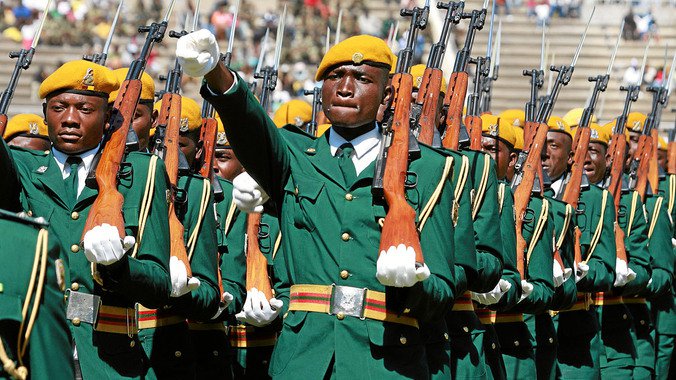
Robert Mugabe’s War in the Democratic Republic of Congo
When the Democratic Republic of Congo’s government under President Laurent Kabila was under attack from rebels, Zimbabwe’s President Robert Mugabe decided to send troops in August 1998. Earlier in 1996, Robert Mugabe had become the chairman of the defense arm of the Southern African Development Community (SADC) and he used this as an excuse for military intervention in the Democratic Republic of Congo. Namibia and Angola also sent troops under as this SADC initiative. Zimbabwe’s Defense Forces sent about 11,000 troops, armored vehicles and combat aircraft. In addition, Namibian and Zimbabwean aircraft were used to bomb Kisangani, in eastern Congo, and Kasangulu, 30km (18 miles) from Kinshasa.
In western Congo, Angolan forces fighting for Kabila managed to recapture towns the rebels had taken. Angola helped Kabila oust President Mobutu Sese Seko, the long-time ruler of what was then Zaire and an ally of UNITA’s leader, Jonas Savimbi. In return, Kabila agreed to cut off UNITA’s supply lines across the two countries’ border. Angola’s intervention in the war was mostly for its own self-preservation.
In return for assisting Kabila retain power, he offered Mugabe and his friends lucrative timber and mining concessions that would give them access to diamonds, cobalt and other minerals. In addition, Zimbabwe was given contracts to supply ammunition, food and consumer goods. Zimbabwean soldiers serving in the Congo were given special allowances. However, the military suffered some serious defeats which created discontent within the ranks. There were unconfirmed reports of Zimbabwean soldiers refusing to take up arms. In early 1999, they were even rumors of a thwarted coup attempt. Up to this day, the Zimbabwean government and military never publicly disclosed the number of deaths, injuries and soldiers captured during this war and the overall cost of this intervention.
During this period, the Zimbabwean economy suffered major setbacks. Inflation increased to about 40%, there was increase in unemployment and the value of the U.S. dollar doubled against the Zimbabwean dollar. At the height of the military intervention, it is estimated that Zimbabwe was spending about $1 million a day in the DRC; however, Mugabe claimed there was no cost for Zimbabweans as the DRC government was footing the bill.
In the end, the main beneficiaries of the war were: Emerson Mnangagwa, now the Vice President of Zimbabwe; John Bredenkamp, an arms dealer; Former General Vitalis Zvinavashe who owned a transportation company and many military Generals who also received contracts to supply consumer goods.




2 Comments
by Pador
Mugabe is a warmonger like Bush. No wonder they did not like each other..
by Gwen nxumalo
War is costly & leads to bankruptcy. Lessons learned.
Comments are closed.